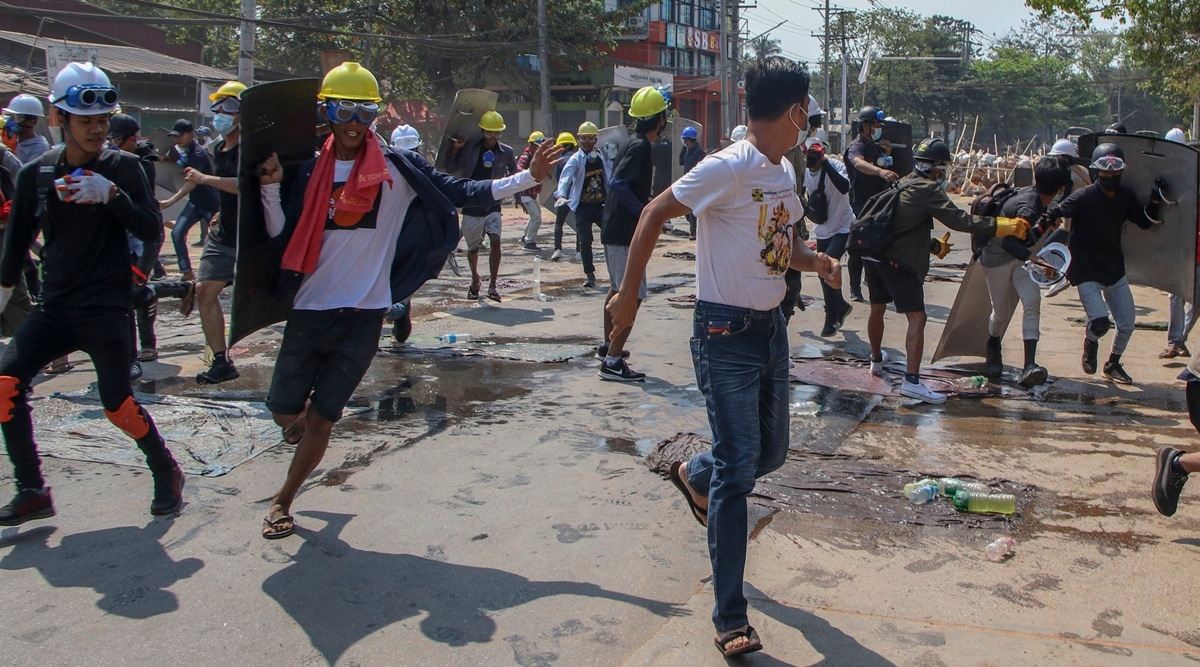 Anti-coup protesters retreat from the frontlines after riot policemen fire sound-bombs and rubber bullets in Yangon, Myanmar, Thursday, March 11, 2021. (AP Photo)
Anti-coup protesters retreat from the frontlines after riot policemen fire sound-bombs and rubber bullets in Yangon, Myanmar, Thursday, March 11, 2021. (AP Photo) An anti coup protest in the central Myanmar town of Myaing turned deadly on Thursday, with staff at the local hospital reporting that at least six people have been killed.
Graphic images shared by a local journalist showed one person dead on the ground in a pool of blood with what appears to be a head injury.
A man who took part in the demonstration and helped carry bodies to the hospital told Reuters news agency that security forces had fired on protesters.
“We protested peacefully,” the man said. “I couldn’t believe they did it.”
Another witness told Germany’s dpa news agency that forces targeted a group of people protesting in front of a police station.
“The police cracked down on the protesters with tear gas and rubber bullets first, then fired shots with live bullets. Now six people are dead, including one of my friends,” the man said.
What is causing violence in Myanmar?
Security forces in Myanmar have been using increasingly brutal tactics to suppress a nationwide protest movement opposing the military take over of the democratically elected government on February 1.
On Thursday, a junta spokesperson accused Myanmar’s ousted leader Aung San Suu Kyi and President Win Myint of corruption.
The military said Suu Kyi accepted illegal payments worth $600,000 (€501,000) plus gold while in government. Myint was accused of pressuring Myanmar’s election commission to ignore the military’s claims of election irregularities.
The military took over the government after claiming for months that the November 2020 general election was fraudulent. Suu Kyi’s National League for Democracy (NLD) party won the election in a landslide victory.
UN condemns violence
Before Thursday, the death toll of the protests stood at 60, with more than 2,000 people having been arrested, according to the Assistance Association for Political Prisoners advocacy group.
The deaths come one day after the UN Security Council unanimously condemned the violence used against protesters and called for Myanmar’s military to exercise “restraint.”
A statement approved by all Security Council members, including Myanmar ally China, also called for the reversal of the coup and the immediate release of elected leaders who have been jailed since the military takeover.
The British-drafted statement stressed “the need to uphold democratic institutions and processes, refrain from violence, fully respect human rights and fundamental freedoms and uphold the rule of law.”
A statement is one step below a Security Council resolution, but it becomes part of the body’s official record.